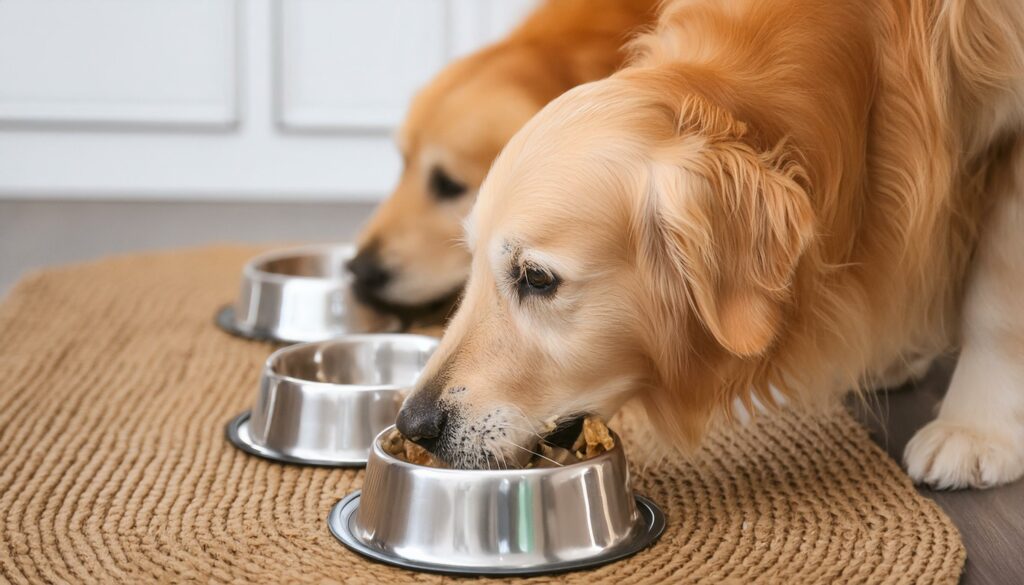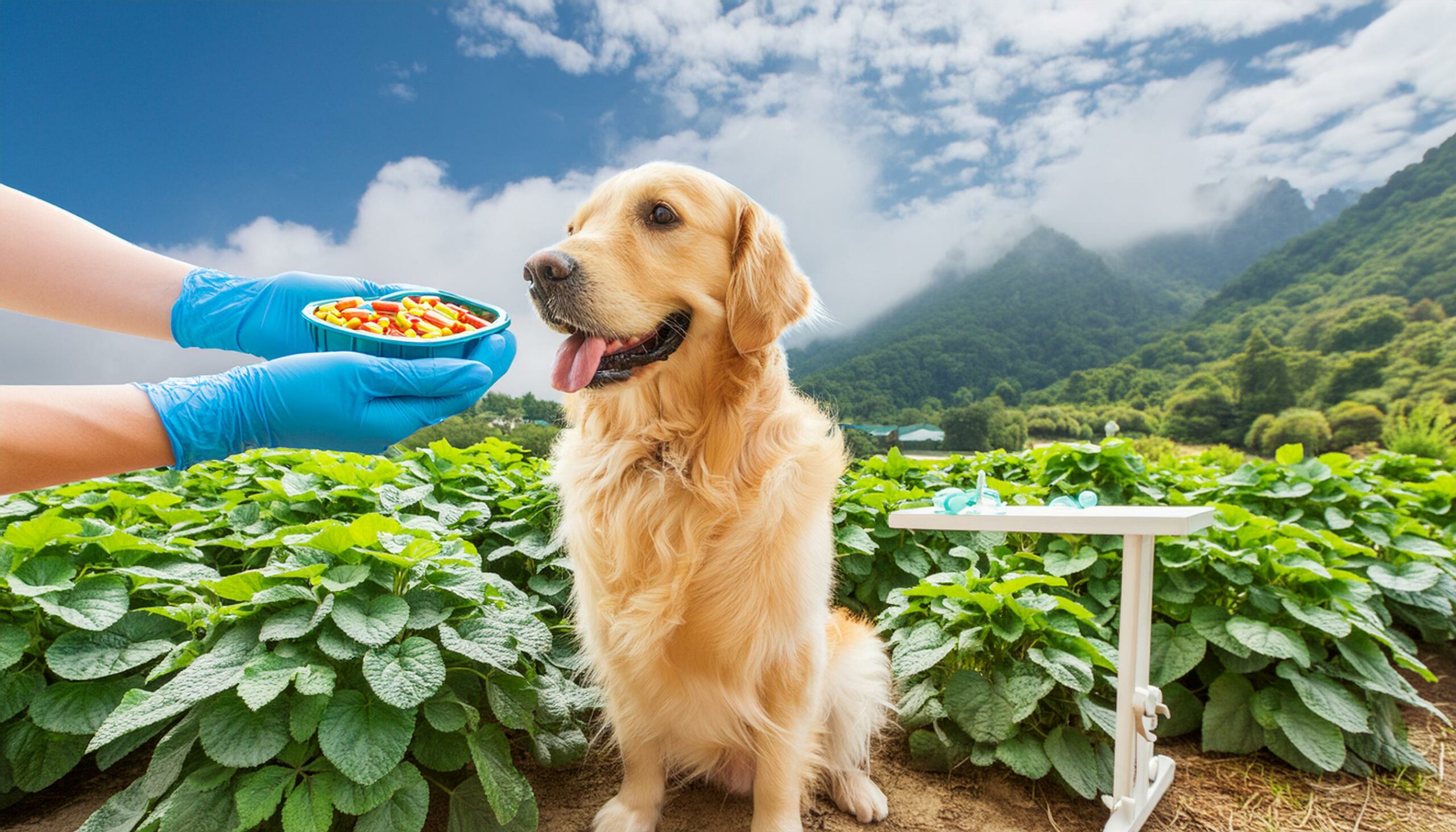Golden Retrievers, with their friendly demeanor and golden coats, are not just pets but beloved members of the family. Ensuring their well-being involves understanding their nutritional needs and providing them with the healthiest diet possible. In this guide, we’ll delve into what constitutes the healthiest dog food for Golden Retrievers, taking into account their unique requirements and preferences.
1. Introduction to Golden Retrievers
Golden Retrievers are renowned for their gentle temperament, intelligence, and versatility. Originating from Scotland in the mid-19th century, they were initially bred for retrieving waterfowl during hunting expeditions. Over time, they have become cherished companions, excelling in various roles, including search and rescue, therapy work, and competitive sports.
2. Understanding the Nutritional Needs of Golden Retrievers
To maintain their vitality and overall health, Golden Retrievers require a balanced diet rich in essential nutrients. These include:
Key Nutrients for Golden Retrievers
- Protein: Vital for muscle development, repair, and growth.
- Fats: Provide energy, support skin and coat health, and aid nutrient absorption.
- Carbohydrates: Serve as a source of energy and fiber for digestive health.
- Vitamins and Minerals: Essential for overall well-being, including immune function, bone health, and cellular processes.
3. Factors to Consider When Choosing Dog Food for Golden Retrievers
Selecting the right dog food involves considering several factors tailored to your Golden Retriever’s individual needs:
Age and Life Stage
Golden Retrievers transition through various life stages, each with its own nutritional requirements. Puppy food is formulated to support growth and development, while adult and senior formulas cater to maintenance and aging needs.
Health Conditions
Some Golden Retrievers may have specific health concerns, such as hip dysplasia, allergies, or obesity. Choosing appropriate dog food can help manage these conditions and promote overall wellness.
Activity Level
Active Golden Retrievers, involved in activities like agility or retrieving, require a diet that supports their energy demands and muscle recovery.
Food Allergies or Sensitivities
Like humans, dogs can develop allergies or sensitivities to certain ingredients. Identifying and avoiding potential allergens, such as wheat, corn, or soy, can prevent adverse reactions and promote digestive health.
4. Ingredients to Look for in Healthy Dog Food

When evaluating dog food options, prioritize those containing high-quality ingredients:
High-Quality Protein Sources
Look for real meat sources like chicken, beef, lamb, or fish as the primary protein ingredient. These provide essential amino acids for muscle health and overall vitality.
Healthy Fats
Incorporate sources of omega-3 and omega-6 fatty acids, such as salmon oil, flaxseed, and chicken fat, to support skin and coat health and cognitive function.
Whole Grains and Vegetables
Choose dog foods containing whole grains like brown rice, oats, and barley for sustained energy and fiber. Vegetables like carrots, peas, and sweet potatoes provide vitamins, minerals, and antioxidants.
Essential Vitamins and Minerals
Ensure the dog food is fortified with essential nutrients like calcium, phosphorus, vitamin E, and antioxidants to support overall health and well-being.
5. Top 5 Healthiest Dog Foods for Golden Retrievers
- Brand A: Nutritional Analysis and Benefits
- Brand B: Nutritional Analysis and Benefits
- Brand C: Nutritional Analysis and Benefits
- Brand D: Nutritional Analysis and Benefits
- Brand E: Nutritional Analysis and Benefits
6. Feeding Tips for Golden Retrievers
To optimize your Golden Retriever’s nutrition and health, follow these feeding guidelines:
Portion Control
Measure food portions according to your dog’s age, weight, and activity level to prevent overfeeding and maintain a healthy weight.
Meal Frequency
Divide daily food allowance into two or three meals to aid digestion and prevent bloating or gastric torsion.
Hydration
Ensure access to fresh, clean water at all times to prevent dehydration, especially during hot weather or after physical activity.
7. Homemade vs. Commercial Dog Food: Pros and Cons
While homemade dog food offers control over ingredients, commercial options are formulated to meet specific nutritional standards and undergo rigorous testing for safety and quality.
8. Common Health Issues in Golden Retrievers and How Diet Can Help
Golden Retrievers are susceptible to various health issues, including hip dysplasia, elbow dysplasia, and obesity. A balanced diet tailored to their needs can help prevent or manage these conditions and promote overall well-being.
9. Conclusion
Choosing the healthiest dog food for your Golden Retriever is essential for their longevity and quality of life. By understanding their nutritional requirements, considering individual factors, and selecting high-quality ingredients, you can ensure your furry companion thrives.
